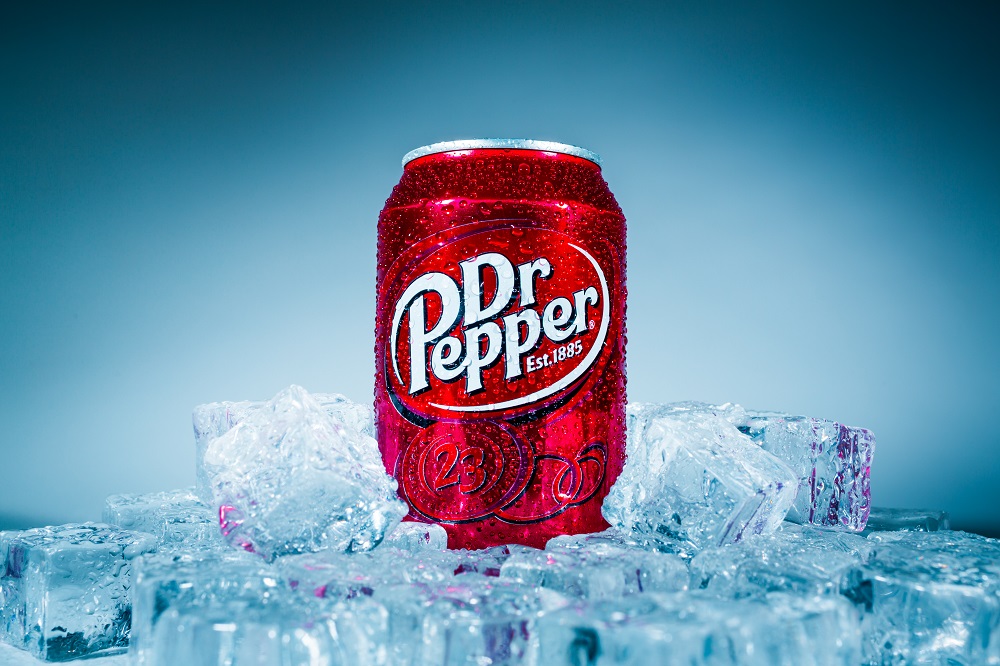Dr Pepper is an iconic carbonated soft drink that has roots all the way back to the 1880s. Created by pharmacist Charles Alderton, the name of the beverage is suggested to be after Dr. Charles Pepper – a friend of the drugstore owner (1). The beverage has an interesting manufacturing situation because the company responsible for Dr Pepper, Keurig Dr Pepper, lacks the global resources for bottling and distribution. Thus, the beverage is bottled and distributed by both The Coca-Cola Company and PepsiCo in other parts of the world.
Dr Pepper can be considered perfectly vegan since it does not contain any obvious animal products. However, there are some ingredients that some vegans might not be too comfortable with. Dr Pepper also comes in other flavors and varieties that contain various ingredients.

According to dietary vegans, Dr Pepper is completely suitable for vegans since the soft drink does not contain any obvious animal products in its ingredients list. The beverage is essentially made of water, sweeteners, and other flavoring agents.
However, there are some ingredients in the original Dr Pepper and some other flavors that cause concern to other vegans. For example, Dr Pepper contains natural flavors – a common ingredient regarded to be a gray area ingredient in the vegan community.
Furthermore, other flavors are used with artificial coloring agents. Although those dyes do not contain animal derivatives, they have undergone animal testing and cannot be considered ethical and cruelty-free. This ingredient is also considered a gray area ingredient because while some vegans might be okay with consuming this ingredient, some vegans are not.
The list of ingredients of Dr Pepper includes (2): carbonated water, high fructose corn syrup, caramel color, phosphoric acid, natural and artificial flavors, sodium benzoate (preservative), caffeine.
It is to be emphasized that the ingredients above correspond to Dr Pepper produced in the US. Dr Pepper produced in other countries might slightly vary.
For example, here are the ingredients for the UK version of the same product (3): carbonated water, sugar, color (caramel E150d), phosphoric acid, preservative (potassium sorbate), flavorings including caffeine, sweeteners (aspartame, acesulfame K). Contains a source of phenylalanine.
Other companies also have these types of variations as well, but this is more prominent for Dr Pepper because different manufacturers are responsible for Dr Pepper in different countries. While Keurig Dr Pepper produces the beverage in the US, The Coca-Cola Company produces the beverage in Europe and South Korea while PepsiCo produces the beverage in Canada and Oceania.
Aside from the original Dr Pepper, other flavors include (4): Dr Pepper Zero Sugar, Dr Pepper and Cream Soda Zero Sugar, Dr Pepper Cherry Zero Sugar, Dr Pepper and Cream Soda, Dr Pepper Cherry, Diet Dr Pepper, Dr Pepper Ten, Caffeine Free Dr Pepper, Cherry Vanilla Dr Pepper, Diet Cherry Vanilla Dr Pepper, Caffeine Free Diet Dr Pepper, Dr Pepper Made with Real Sugar.
Although no obvious animal products or derivatives are used for the production of Dr Pepper, there are some ingredients that some vegans call gray area ingredients – these are ingredients that are more difficult to determine if whether they are vegan or not.
Natural flavors are a common ingredient in many food products and beverages. They are natural substances that primarily aim to impart flavor, thus natural flavors are mostly flavoring agents. Unfortunately, natural flavors are a common debate topic in the vegan community because of their FDA definition. Specifically, the FDA defines natural flavors as (5):
“The essential oil, oleoresin, essence or extractive, protein hydrolysate, distillate, or any product of roasting, heating or enzymolysis, which contains the flavoring constituents derived from a spice, fruit or fruit juice, vegetable or vegetable juice, edible yeast, herb, bark, bud, root, leaf or similar plant material, meat, seafood, poultry, eggs, dairy products, or fermentation products thereof, whose significant function in food is flavoring rather than nutritional.”
FDA.gov
Natural flavors encompass natural substances that function for flavoring. However, the problem arises due to the fact that the umbrella definition includes both plant and animal products. Thus, it is difficult to determine if whether a product that contains natural flavors is truly vegan or not since natural flavors can possibly consist of both plant- and animal-derived products.
Color is always an important part of the food and beverage experience as it affects the perception of the product. While some food products naturally exhibit visually appealing colors due to their ingredients, some companies find active ways to manipulate the color of their products to be more appealing to the market. For this purpose, these companies use food coloring agents.
Many food coloring agents are available in the market and many of them are naturally sourced. However, synthetic food dyes have become more popular over the years. Although these synthetic dyes, or artificial coloring agents, do not contain any animal product or derivative, they are still highly problematic in the vegan community.
From an ethical standpoint, artificial coloring agents cannot be considered vegan due to the fact that they had to undergo numerous animal testing studies. Understandably, safety is always important, but the use of animal models has been considered to be highly unethical – especially when alternative safety studies can be done through the use of cell models and in silico studies (i.e., the use of computer models and algorithms).
Although the original Dr Pepper does not contain any artificial coloring agents, other flavors and varieties of Dr Pepper do. Specifically, the following flavors contain an artificial coloring agent known as Red 40: Dr Pepper Cherry Zero Sugar, Dr Pepper Cherry, Cherry Vanilla Dr Pepper, and Diet Cherry Vanilla Dr Pepper.
Red 40, also known as Allura Red, has been known to be tested on a wide variety of animals including mice, rats, rabbits, dogs, and pigs (6). Animal testing studies usually subject these animals to inhumane conditions that end up killing these animals.
References
1. https://www.drpeppersnapplegroup.com/
3. https://www.coca-cola.co.uk/
